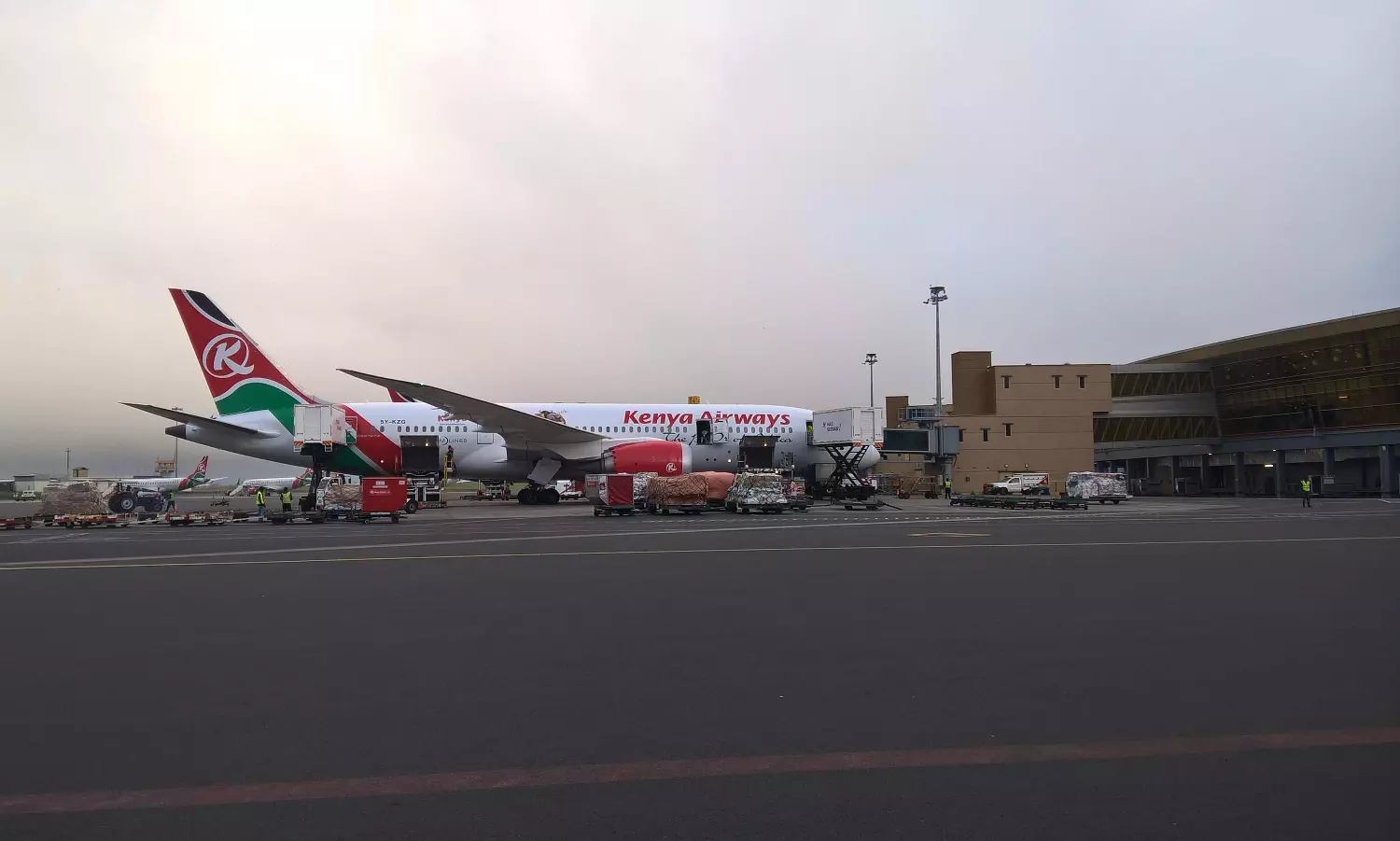Kenyan court temporarily blocks Adani's proposal to lease JKIA
The Law Society of Kenya and the Kenya Human Rights Commission argue that the lease is too costly and poses risks to jobs and fiscal stability.

The Law Society of Kenya and the Kenya Human Rights Commission argue that the lease is too costly and poses risks to jobs and fiscal stability.The High Court of Kenya has issued a temporary block on a proposed 30-year lease agreement for Jomo Kenyatta International Airport (JKIA) between the Kenya Airports Authority (KAA) and the Indian conglomerate Adani Group, as per court documents.
The Law Society of Kenya (LSK) and the Kenya Human Rights Commission (KHRC) jointly applied to the court on Monday, stating that Kenya could independently raise the $1.85 billion needed to upgrade the country's main airport. The joint application argued that the deal with the Indian conglomerate was unaffordable and posed a fiscal risk. LSK and KHRC also raised concerns about potential job losses and questioned the value for money for taxpayers in this deal.
The court document stated, "Applicants (LSK and KHRC) have learned from whistleblower accounts about a plan to lease Jomo Kenyatta International Airport (JKIA), a strategic and profitable national asset, to the Indian conglomerate Adani and its subsidiaries for 30 years. Applicants assert that Kenya can independently raise the estimated 1.85B USD or 238B Kenya Shillings needed to expand JKIA without leasing JKIA for 30 years. Thus, the Adani proposal is unaffordable, threatens job losses, exposes the public disproportionately to fiscal risk, and offers no value for money to the taxpayer."
LSK President Faith Odhiambo posted on the social media platform X late Monday that the High Court has granted permission to pursue a judicial review, challenging the potential lease of JKIA to Adani.
High Court grants LSK and KHRC's request for leave to file a judicial review to challenge the KAA's decision to lease JKIA to Adani for 30 years.The court has meanwhile issued a stay prohibiting any person from implementing or acting on the privately initiated Adani proposal… pic.twitter.com/C2bo6Xkmu8— Faith Odhiambo (@FaithOdhiambo8) September 9, 2024
The deal aimed to modernise JKIA by constructing a new runway, but it has faced scrutiny due to ongoing protests and demands for greater transparency in the investment process. These protests have significantly disrupted operations at Nairobi's main airport. The Kenya Aviation Workers Union, representing airport staff and Kenya Airways employees, is leading the demonstrations against the proposed public-private partnership. Strikes by workers have caused widespread flight delays and cancellations, leaving hundreds of passengers stranded.
Major airlines, including Kenya Airways, Ethiopian Airlines, and RwandAir, have reported disruptions. While the strikes were initially postponed for negotiations, they have now resumed. The Kenyan government has reaffirmed that JKIA is not for sale, and no final decision has been made on the partnership. The Kenya Airports Authority informed via their X account that minimal operations at JKIA had resumed by 7 a.m.
KAA Statement on the current situation at Jomo Kenyatta International Airport (JKIA) pic.twitter.com/ILvIIfpj8B
— Kenya Airports Authority (@KenyaAirports) September 11, 2024
"The petition argues that this arrangement violates Article 201(c) of the Constitution, which mandates that the benefits and burdens of resource use must be shared equitably across generations. Adani's corporate track record is also under scrutiny," according to a recent release by KHRC.
In July, the Kenyan government assured the public that JKIA was not for sale despite proposed investments by Adani Airport Holdings Limited (AAHL). The $2 billion expansion plan aims to modernise JKIA and boost Kenya's economy by constructing a new terminal and second runway. Due to financial constraints, the government is considering public-private partnerships (PPPs) for funding, with AAHL proposing an 18% internal rate of return (IRR) on their investment.
However, a court document has raised significant concerns about Adani's proposal for expanding and managing JKIA. Adani was not required to build a new runway, claiming the existing one was sufficient until 2048. Furthermore, the proposal allowed Adani to retain an 18% equity stake in the aeronautical business indefinitely, with concession fees starting at KSh 6 billion and increasing by 10% every five years.
The proposal also restricted KAA from building competing airports within a 150-kilometre radius of JKIA for 30 years and transferred most fiscal risks to KAA, violating Kenya's Public Private Partnership Act (PPPA) and Article 201 of the Constitution. Additionally, the proposal granted Adani tax-free status for 10 years, permitted the importation of labour and demanded amendments to Kenyan law. Critics argued that the deal risked displacing Kenyan workers and contradicted prior parliamentary decisions against the private leasing of JKIA.
According to the court document, "leasing a strategic and profitable national airport to a private entity is irrational." Moreover, the document highlights that this deal "violates the principles of good governance, accountability, transparency, and prudent and responsible use of public money under Articles 10 and 201." It further stated, "Meanwhile, Kenya Airports Authority must meet the conditions for the concession by 31 October 2024. This application will be nugatory and moot if KAA and Adani sign the agreement and Adani acquires JKIA despite this application."


